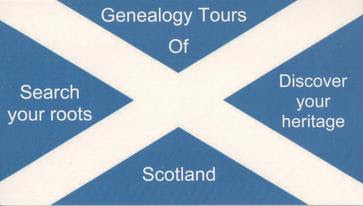Most of us, as family historians, will have uncovered stories that, had they turned out differently, would have meant we wouldn’t exist. A near miss with death. These always humble us. And yet few of us think about our own “close calls”.
Also, as family historians, we need to recognize that we, too, will one day become an ancestor. It is important that we document our own story so that others may know us and so that we won’t be forgotten to the mists of time.
When I teach my course on writing “The Story of You”, one of the prompts I offer for people to think about is “accidents/illness/injury” The depth of this is, of course, up to the individual writer. It can be minor accidents, sports injuries or life threatening illnesses. Here’s my story…
When I was young, my mother, a nurse, worked in a busy city hospital. She worked shifts. My dad, a machinist, worked in a factory. He worked steady days. When mum was afternoons or nights, it was just dad and I.
One January, two months before I turned 6, my mum was working afternoons. She called my dad on her break. He said he and I were off to Guelph to visit close friends of the family for the evening. I can’t recall whether we made it to our friends’ house or whether the accident happened on our way home. I just remember that it was dark.
I heard my dad yell. I heard a crunch. Then I remember the passenger door opening and dad saying we need to get out. He carried me out. I wasn’t aware of it at the time, but blood was pouring from his head. Suddenly there were other people around. “We need to move in case that explodes” We moved, blankets and all. The next thing I remember was being in a room with very bright lights and a man telling me it was “ok, just pretend it (was) lemonade.” They were trying to give me “gas”. But I couldn’t be fooled. My dentist used gas and I hated it. I held my breath. There was some chatter about stubbornness and “Let’s try…” I don’t remember anything after that.
My next memory was in a darker room. And a man was there. Talking softly. I later learned that this was the surgeon who had stayed by my bedside until I was out of danger.
The details of the story came to me much later. Dad and I were in a head on collision. Hit by a drunk driver. This was in the days before seatbelts. And child safety seats. Dad hit the steering wheel, breaking several ribs. His head not only hit the windshield but went through it. His scalp had nearly been ripped off. Fortunately, a plastic surgeon had been on call. 92 stitches later, his scalp was back in place, the scars mingling with the natural lines of his forehead. His forehead was numb after that. The nerves had all been damaged. I was in the front seat and on impact, was thrown onto the floor and below the dash. Right where the impact was. My right leg was broken. And I was not doing well.
In the hospital, the doctors suspected I was bleeding internally. This was in the days before CT scans, so the only option was “exploratory” surgery. Opening up my abdomen and looking to see where the bleeding was coming from. Thus, the need for the anesthetic. It turns out my liver had been lacerated. Two thirds of it were removed. I also had a pulmonary embolism. And a fractured femur.
For the
fracture, I was placed in a Thomas Splint. This splint was first invented by a Welsh
physician, Dr. Hugh Owen Thomas. The idea behind the splint was rest and
immobilization. The injured leg is pulled into alignment (and yes, I remember
the pain of that vividly) then immobilized by the splint. For weeks or even
months. The Thomas Splint was widely used in both world wars on wounded
servicemen.
While we were both in the hospital, my dad would come to the pediatric ward every day to visit. Sometimes two or three times a day. He was discharged long before me. I remember him telling me he wouldn’t be visiting as often. But I still believed he was in the hospital, so when he arrived, he would don a bathrobe and slippers and come into my room for a visit.
Prior to the
accident, I had been invited to be a flower girl in the wedding of a family friend. But, now, in order to do so, I had to relearn how to walk. The bride's dad, who I referred to as Uncle Jack, was
a big part of encouraging me and giving me the confidence to be able to walk again. We would visit at
his house, and we would practice and practice until I was finally confident enough
to walk on my own.
I often think
about my poor mum. Being at work. Getting the phone call and not knowing whether
her husband and child would be alive when she made it to the hospital an hour
away. Being a nurse, she would know all too well what the odds were. That must have
felt like one of the longest rides of her life.
The scorch
marks created by the burning cars could be seen on the roadway for years to
come.





Beautifully written Chris. Your Dad sounded like a wonderful caring father.
ReplyDeleteWow
ReplyDeleteMy lord! I can't imagine going through that pain. Too bad they didn't give you gas or something before straightening your leg.
ReplyDeleteOh, p.s. you sitting with your dad in that first pic is very lady-like of you! 😉